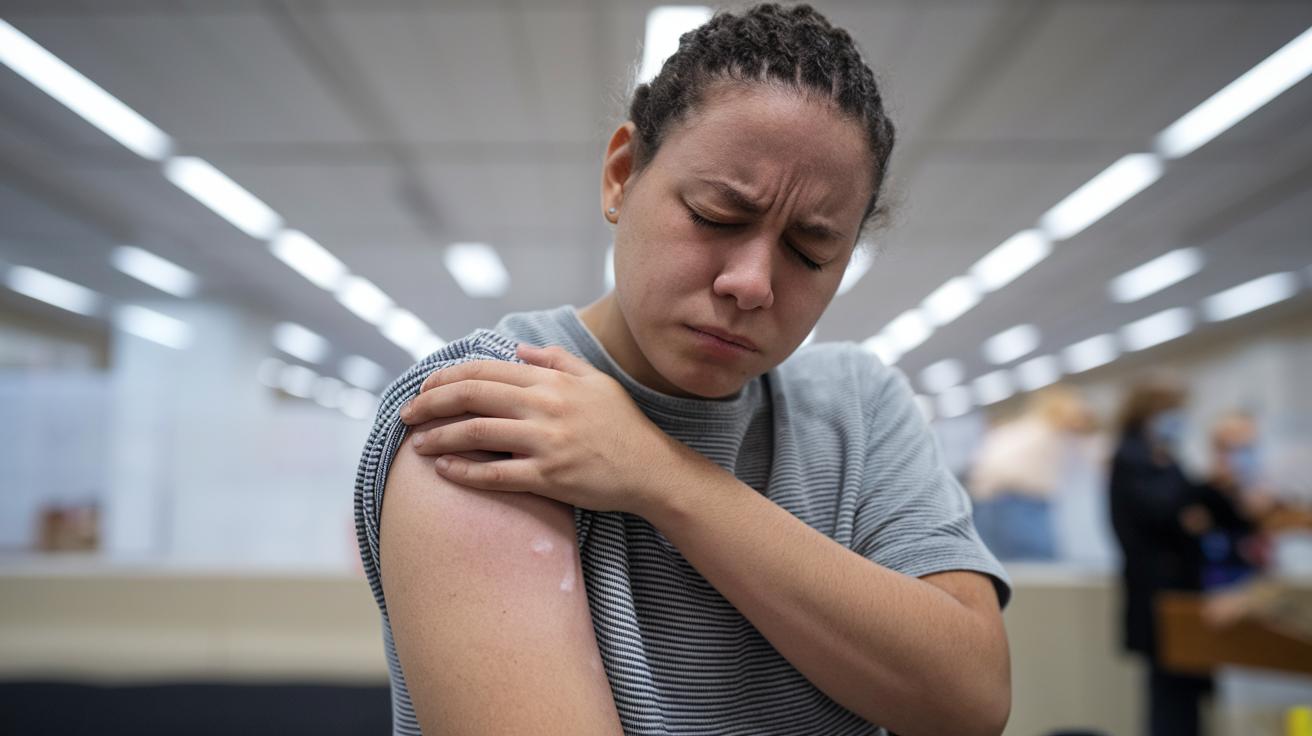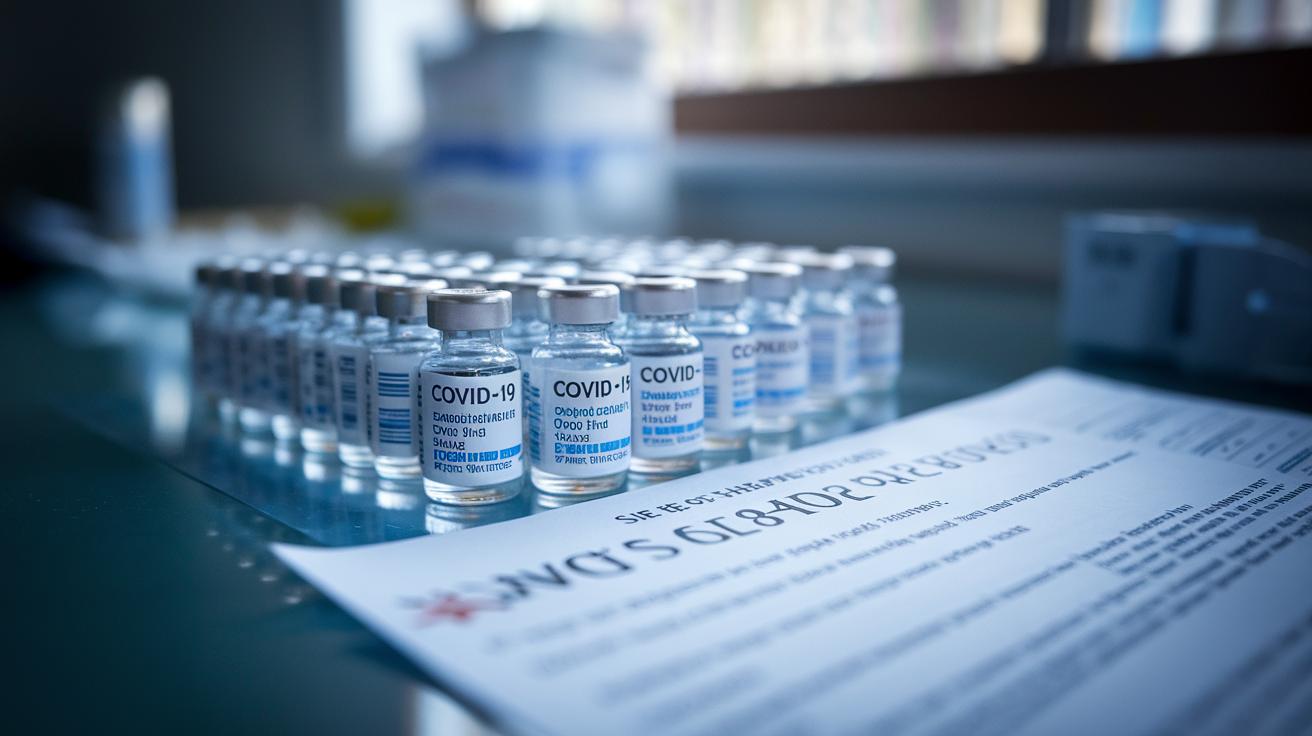Are you curious about what might happen after getting a COVID shot? Understanding vaccine side effects is crucial, as they often signal an effective immune response. Surprisingly, common side effects of the COVID vaccine, like headaches and fatigue, are typically mild and fleeting, according to research from UCSF. This article delves into the expected side effects, from the common to the rare, providing a comprehensive guide on what to anticipate when protecting yourself and others. It's essential to stay informed and prepared, ensuring a seamless vaccination experience.
Common Side Effects of the COVID Shot

COVID-19 vaccines, including those from Pfizer and Moderna, are associated with a range of common side effects, primarily mild and transient in nature. These reactions, such as headache, chills, tiredness, and localized pain at the injection site, are indicative of the body's immune response to the vaccine. This response demonstrates that the vaccine is working to build immunity against the virus. A study led by UCSF supports the notion that the presence of these symptoms correlates with the activation of the immune system. The mRNA technology employed by both Pfizer and Moderna vaccines results in a similar side effect profile, reflecting the body's natural process of preparing to combat COVID-19.
- Headache
- Chills
- Tiredness
- Injection site pain
- Muscle ache
These side effects are typically short-lived, often resolving within a few days post-vaccination. The initial dose might produce more pronounced symptoms as the immune system is exposed to the vaccine for the first time. Subsequent doses generally result in a quicker immune response, potentially with reduced side effect intensity. While these reactions are common, they generally do not require medical intervention. The temporary nature of these symptoms underscores the safety and efficacy of the vaccines, making them a critical tool in preventing severe illness and curbing the spread of COVID-19.
Understanding Serious COVID Shot Side Effects

The occurrence of serious side effects from COVID-19 vaccines is exceptionally rare, yet awareness of potential risks remains crucial. These adverse effects are significantly less common compared to the mild reactions most people experience. Vaccination programs prioritize safety, with clinical trials involving thousands of participants aimed at identifying any serious health concerns. The rarity of these effects is underscored by comprehensive studies, ensuring that the benefits of vaccination in preventing severe COVID-19 far outweigh potential risks. Transparency about such risks, though minimal, is vital to maintaining trust and informed decision-making in public health.
Specific serious side effects have been associated with different types of vaccines, although their incidence is exceedingly low. Myocarditis and pericarditis, inflammations of the heart, have been linked primarily to mRNA vaccines such as those by Pfizer and Moderna. The world's largest study on COVID-19 vaccine side effects confirmed these findings while emphasizing their rarity. Guillain-Barré syndrome, a temporary condition involving muscle weakness, was notably associated with the AstraZeneca vaccine but not with mRNA vaccines. These conclusions are drawn from extensive research including nearly 100 million people across eight countries. Such data-driven insights help contextualize the minimal risks involved, reinforcing the overall safety and efficacy of COVID-19 vaccines.
Managing COVID Shot Side Effects

What can be done to manage side effects after a COVID shot? Rest and hydration are primary strategies. Over-the-counter pain relievers such as acetaminophen or ibuprofen can alleviate discomfort and reduce fever. It's essential to monitor symptoms and consult a healthcare provider if severe reactions occur. The occurrence of side effects often signifies the body's immune response, indicating that the vaccine is working as intended. This immune activation is a typical outcome of the vaccination process, and most side effects are short-lived and manageable with simple interventions.
- Rest: Allow the body to recuperate by getting adequate sleep and minimizing strenuous activities.
- Hydration: Drink plenty of fluids, such as water and electrolyte-rich beverages, to maintain hydration.
- Pain Relief: Use over-the-counter medications like acetaminophen or ibuprofen for pain and fever reduction.
- Symptom Monitoring: Keep track of any persistent or unusual symptoms and seek medical advice if necessary.
COVID Shot Side Effects in Seniors

Seniors receiving COVID-19 vaccines often encounter side effects akin to those experienced by younger individuals. Common reactions include mild symptoms such as headache, fatigue, and localized pain at the injection site. These symptoms are generally mild and transient, indicating an active immune response. For seniors, the body's response may manifest slightly differently due to age-related changes in immune function, but the overall profile of side effects remains consistent. The presence of these mild reactions suggests that the vaccine is effectively triggering the desired immune response, preparing the body to fend off the virus.
Vigilance is paramount for older adults, particularly concerning the potential for severe vaccine reactions, although these remain rare. Monitoring symptoms post-vaccination is crucial, especially for those with pre-existing health conditions. Seniors are advised to seek medical consultation if they experience persistent or unusual symptoms. Healthcare providers can offer guidance tailored to individual health profiles, ensuring that any adverse effects are promptly addressed. This proactive approach to monitoring can mitigate risks and provide reassurance for seniors and their families.
Despite the necessity for caution, clinical studies confirm that COVID-19 vaccines are both safe and effective for older adults. Research indicates that the benefits of vaccination significantly outweigh the potential risks, particularly given the heightened vulnerability of seniors to severe COVID-19 outcomes. Trials involving individuals with heart conditions demonstrate a reduced risk of severe side effects, reinforcing the vaccines' safety. The robust safety profile of COVID-19 vaccines for seniors underscores their role as a critical tool in safeguarding public health, reducing the incidence of severe illness, hospitalization, and death.
Expert Insights on Long-term COVID Shot Effects

What are the long-term effects of COVID-19 vaccines? According to current research, long-term side effects are rare. Ongoing studies focus on monitoring these vaccines' safety and effectiveness over extended periods. Clinical trials and real-world data collection continue to provide insights into their long-term impact, with early findings indicating that the vaccines remain safe for widespread use. This ongoing research aims to provide a comprehensive understanding of any potential long-term risks, ensuring continued public health safety.
Experts assert that the advantages of COVID-19 vaccination significantly outweigh any potential long-term risks. Vaccines have proven effective in preventing severe illness, hospitalization, and death associated with the virus. Healthcare professionals emphasize the importance of vaccination as a critical strategy in mitigating the pandemic's impact. Studies conducted across diverse populations support the vaccines' favorable safety profiles, reinforcing their role in public health efforts. These expert opinions and research findings underscore the necessity of vaccination to protect individuals and communities from severe COVID-19 outcomes.
Final Words
Navigating the landscape of covid shot side effects reveals a spectrum from common, short-lived reactions to rare, serious ones. Mild symptoms like headaches and chills often signify the immune system's positive response. Conversely, rare cases of myocarditis highlight the importance of transparency and monitoring. Management of post-vaccine effects is generally straightforward, with hydration and rest often sufficing. Seniors, while experiencing similar effects as younger adults, must remain attentive to severe reactions. Experts underscore the benefits of vaccination, outweighing potential risks. The ongoing dedication to research cements the vaccine's role in combating COVID-19 effectively.
FAQ
How long do COVID vaccine side effects last?
The common side effects of COVID-19 vaccines generally last for a few days. Most side effects, such as headache or injection site pain, should resolve within 48 hours, aligning with typical immune responses.
What are the long-term side effects of the COVID-19 vaccine?
Long-term side effects are rare. Current studies and expert reviews indicate that the benefits of vaccination significantly outweigh potential long-term risks, with ongoing research continuing to confirm vaccine safety.
What are the most serious side effects of COVID vaccines?
Serious side effects are extremely rare but may include myocarditis or pericarditis with mRNA vaccines. Guillain-Barré syndrome has been associated with AstraZeneca, underscoring the importance of risk transparency.
How soon do COVID vaccine side effects appear?
Side effects typically manifest within the first 24 hours after vaccination. These include mild symptoms such as tiredness or chills, indicating an expected immune response.
Can the COVID vaccine cause heart-related side effects?
Myocarditis and pericarditis are rare side effects associated with mRNA vaccines. Surveillance data supports that these conditions are extremely uncommon, with ongoing investigations monitoring all reported cases.
What are the side effects of the new COVID shot?
The new COVID shot shares a similar side effect profile with earlier vaccines, including mild symptoms like headache, fatigue, and injection site pain. These effects signify immune activation and typically resolve quickly.
Can you feel sick after receiving a COVID booster?
Feeling mildly ill post-booster is possible, reflecting an immune response. Common symptoms include fatigue and muscle aches, typically resolving without medical intervention within a few days.
What are the negative reactions to the COVID vaccine?
Negative reactions are rare. Most individuals experience mild to moderate side effects, while severe reactions such as anaphylaxis are incredibly uncommon. Monitoring and immediate medical attention are vital for any severe symptoms.


